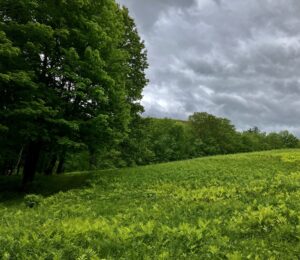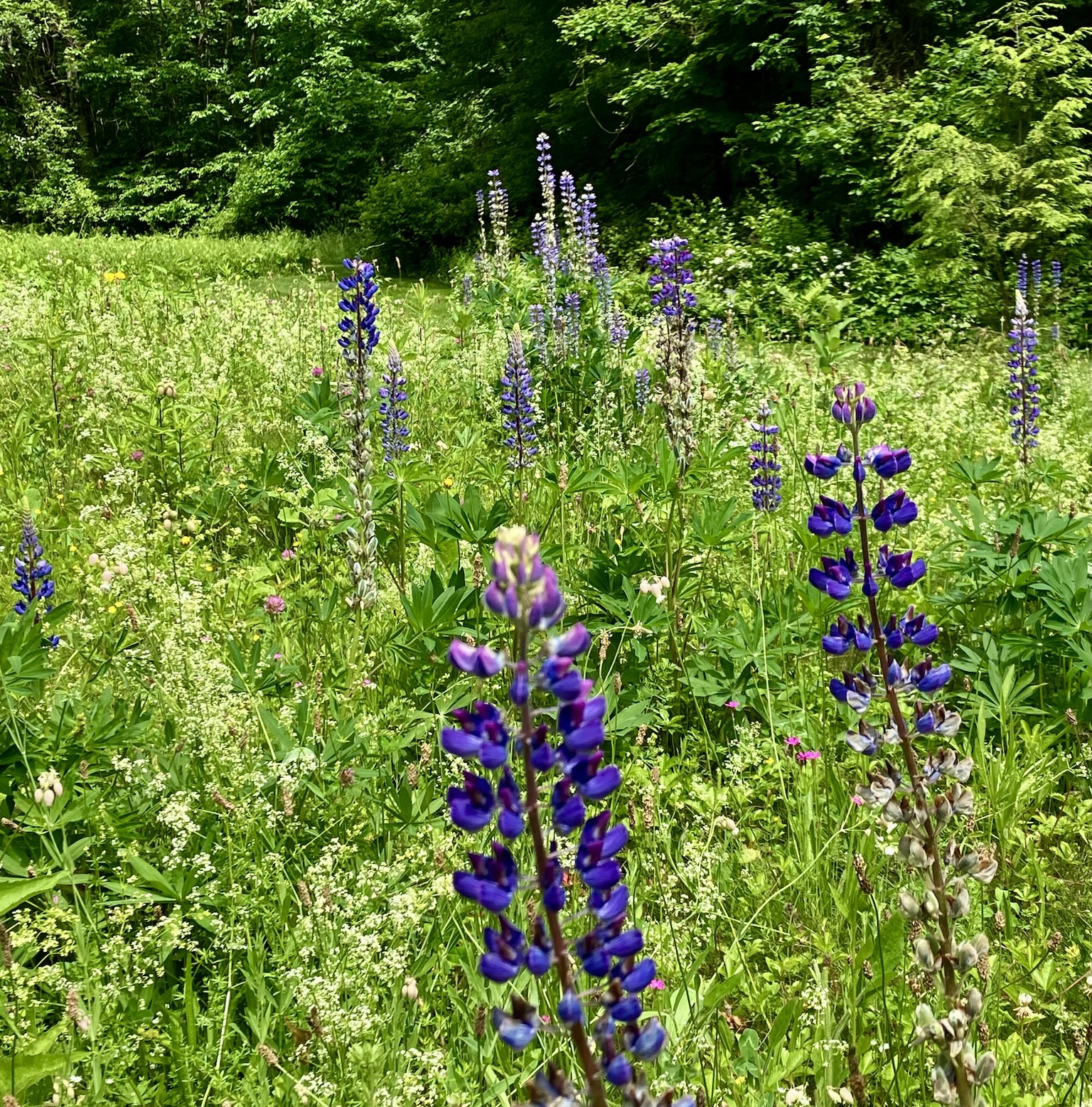 The daffodil heads have shriveled. The tulips stand naked, their bright silk half-slips scattered on the ground. The lilacs are blooming now, the scent intoxicating the air, spent flowers drifting like snowflakes across the lawn (an image stolen from Elizabeth Bishop’s poem below). It’s almost cold enough to snow. Though spring keeps moving through its paces, the temperatures remain stuck in the mid-50s during the day with nighttime lows dipping dangerously close to freezing. April showers did indeed bring May flowers but have lingered well into the month, and rain seems to be a permanent fixture of the weather forecast. From the window, the garden beckons – tra la! It’s May! The lusty month of May! – but be prepared for the “chill white blast of sunshine” that Bishop so perfectly evokes in this poem on the subject.
The daffodil heads have shriveled. The tulips stand naked, their bright silk half-slips scattered on the ground. The lilacs are blooming now, the scent intoxicating the air, spent flowers drifting like snowflakes across the lawn (an image stolen from Elizabeth Bishop’s poem below). It’s almost cold enough to snow. Though spring keeps moving through its paces, the temperatures remain stuck in the mid-50s during the day with nighttime lows dipping dangerously close to freezing. April showers did indeed bring May flowers but have lingered well into the month, and rain seems to be a permanent fixture of the weather forecast. From the window, the garden beckons – tra la! It’s May! The lusty month of May! – but be prepared for the “chill white blast of sunshine” that Bishop so perfectly evokes in this poem on the subject.
A Cold Spring
by Elizabeth Bishop
For Jane Dewey, Maryland
Nothing is so beautiful as spring. – Hopkins
A cold spring:
the violet was flawed on the lawn.
For two weeks or more the trees hesitated;
the little leaves waited,
carefully indicating their characteristics.
Finally a grave green dust
settled over your big and aimless hills.
One day, in a chill white blast of sunshine,
on the side of one a calf was born.
The mother stopped lowing
and took a long time eating the after-birth,
a wretched flag,
but the calf got up promptly
and seemed inclined to feel gay.
The next day
was much warmer.
Greenish-white dogwood infiltrated the wood,
each petal burned, apparently, by a cigarette-butt;
and the blurred redbud stood
beside it, motionless, but almost more
like movement than any placeable color.
Four deer practised leaping over your fences.
The infant oak-leaves swung through the sober oak.
Song-sparrows were wound up for the summer,
and in the maple the complementary cardinal
cracked a whip, and the sleeper awoke,
stretching miles of green limbs from the south.
In his cap the lilacs whitened,
then one day they fell like snow.
Now, in the evening,
a new moon comes.
The hills grow softer. Tufts of long grass show
where each cow-flop lies.
The bull-frogs are sounding,
slack strings plucked by heavy thumbs.
Beneath the light, against your white front door,
the smallest moths, like Chinese fans,
flatten themselves, silver and silver-gilt
over pale yellow, orange, or gray.
Now, from the thick grass, the fireflies
begin to rise:
up, then down, then up again:
lit on the ascending flight,
drifting simultaneously to the same height,
– exactly like the bubbles in champagne.
– Later on they rise much higher.
And your shadowy pastures will be able to offer
these particular glowing tributes
every evening now throughout the summer.

I love the description of the smallest moth!
Reminds me so much of Mary Oliver..doncha agree?
Thank you for these feelings of/for Spring..
Annette
Thank you, Annette, and, yes, I do agree that Bishop and Oliver are akin — both keen observers of nature. To me, Bishop is more intellectual and restrained — and Oliver throws herself emotionally into the poem. “Tell me, what it is you plan to do with your one wild and precious life?”